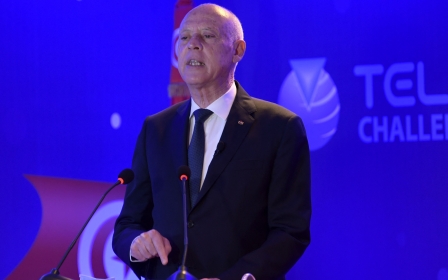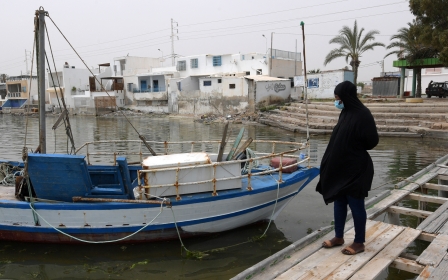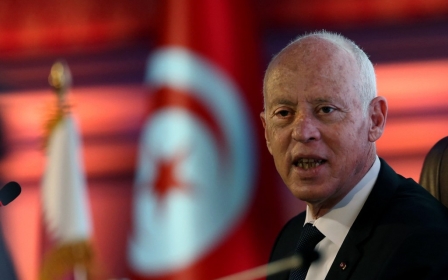Tunisia arrests popular blogger over insulting President Kais Saied
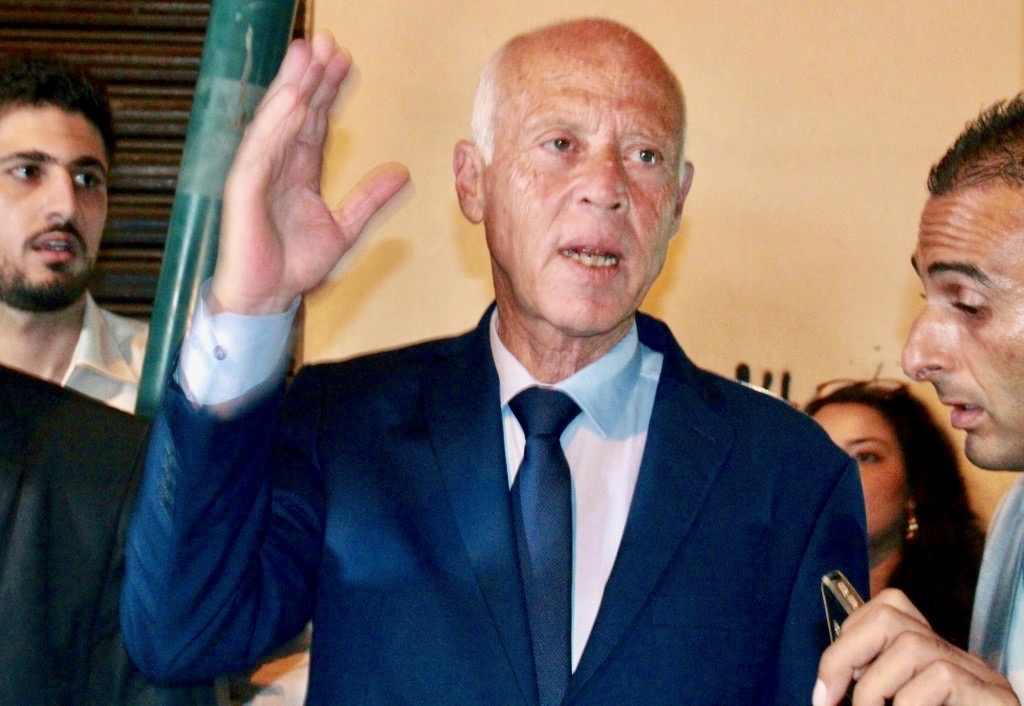
Tunisian authorities arrested a prominent blogger on Monday over charges of insulting President Kais Saied, several local media outlets reported.
Salim al-Jabali, who runs the popular Facebook page "the minister of hypertension and diabetes" - a tongue in cheek account which refers to ailments associated with stress, was detained on Monday after a complaint was filed by the Tunisian presidency, Nessma TV reported.
Al Masdar Tunis reported that Jabali would face charges in front of a military court.
"Salim Jabali, the minister of hypertension of diabetes, did not rob or kidnap or even curse anyone... He's being accused of criticising his majesty the leader and [presidential adviser] Nadia Akacha, so he found himself in front of the military judiciary after he was detained today," the page said in a post confirming Jabali's arrest on Monday.
In subsequent remarks, the page's administrators criticised the Tunisian military for its involvement in prosecuting Jabali.
New MEE newsletter: Jerusalem Dispatch
Sign up to get the latest insights and analysis on Israel-Palestine, alongside Turkey Unpacked and other MEE newsletters
"How does the military institution allow itself to be used as a thick stick by the president to scare the people," one post said.
Tunisia's biggest political party, Ennahda, which has been at odds with Saied since he took office in late 2019, said in a statement that it opposed the arrests of bloggers and their referrals to military courts.
Free speech concerns
Tunisia's transition to democracy is often hailed as the sole success story of the 2011 Arab Spring uprisings against autocrats in the Middle East and North Africa.
Still, restrictions on freedom of speech and arrests against activists and bloggers continue, almost a decade after a popular revolt toppled longtime president Zine El Abidine Ben Ali.
Last year, Amnesty International warned that freedom of expression in Tunisia is in danger because of the increased prosecution of people over social media posts, noting that at least 40 bloggers have been detained between 2018 and 2020.
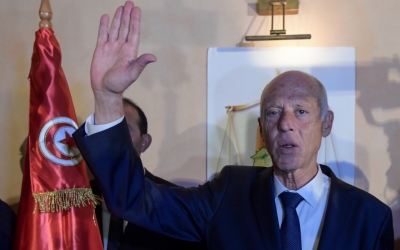
"It is extremely disturbing to see bloggers and activists being targeted with criminal prosecutions under laws that date back to the time of repression in Tunisia ten years after the revolution, for simply posting their views on Facebook," Amnesty's Amna Guellali said in a statement at the time.
"Instead of trying to muzzle criticism, the Tunisian authorities should uphold the right of each and every person to express themselves freely and safely without fear of reprisals."
Saied, a former law professor with minimal political experience prior to running for president, was elected in 2019, succeeding Beji Caid Essebsi who died in office that year.
Last month, MEE revealed a top-secret document addressed to Akacha outlining a potential plan for Saied to orchestrate a coup to concentrate power and declare a "constitutional dictatorship" amid a worsening economic crisis.
Last week, Saied confirmed the authenticity of the document but stressed that he merely received it, but he did not endorse it and was not involved in it.
This article is available in French on Middle East Eye French edition.
Middle East Eye delivers independent and unrivalled coverage and analysis of the Middle East, North Africa and beyond. To learn more about republishing this content and the associated fees, please fill out this form. More about MEE can be found here.


